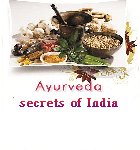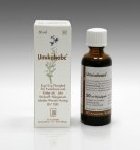Native Medicine - Nature's Pharmacy

Native medicine consist of ancient healing knowledge about how to use of special herbs and plants, special leaves, special roots, barks from special trees and other natural compounds to achieve healing for various health conditions. Usually, they are local or unique to a particular culture or region. You will find examples from all cultures because every culture has its own collection (usually unwritten) of native medicine.
Today, popular native medicine include those of the Chinese people (TCM), and those of India origin (Ayurveda). Western culture also has a history of proven native medicine. Did your grandmother not tell you chicken soup is good for your colds? This is part of native western medicinal knowledge. As a little boy prone to frequent nose bleeding, my grandmother would plug my bleeding nostril with cold wood charcoal and ask me to tilt my head backward for a few moments. It stopped the blood flow. Something you inhale from cold wood charcoal must be beneficial for stopping nose bleeding. Perhaps medical science should take a look at that.
Before they knew about western medicine, some of Western Africa's people used to rely on a very effective local remedy for treating malaria. They will receive from traditional herbsmen a chosen variety of special leaves from the forest which they proceeded to bring to a boil in a large pot. Some of the potion is given the patient to drink. Then the patient is made to sit under covers leaning over and inhaling and exhaling the steam from this hot concoction. An average of three treatments later, and the patient is well again. No medical doctors and no chemical drugs.
Have you seen someone apply pressure to their temples (accupressure) in an attempt to relieve severe headache or stress? If so, you have seen native cures at work. Accupuncture is very popular today all over the world as a healing remedy, but did you know it is a gift to the world from Chinese native medicine?
Facts About Native Medicine
|
Why Use Native Medicine Today?
|
Disclosure - "As an Amazon Associate I earn from qualifying purchases made through this site." You may consider it your way of encouraging this ministry.





